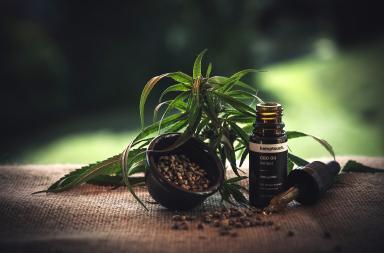This post is also available in:
 Italiano (Italian)
Italiano (Italian)
Technically speaking, the marijuana policy is not part of the government agreement between the Lega and the Five Star Movement (M5S). But there is no assurance they will refrain to address it somehow, even if only as a propaganda tool. In any case, any decriminalization effort will be prevented, at least as long as the pact between Lega and M5S will hold on. But some recent statements by the Minister of Interior (Matteo Salvini, Lega), along with those by Minister of Family and Disability (Lorenzo Fontana, Lega), are cause for serious concern. Equally worrisome is the lack of an official Parliament report on cannabis policy by Fontana, who instead decided to post some contradictory data on Facebook.
The therapeutic use of cannabis seems of little interest to the minority cabinet party (Lega). Indeed, ideological arguments are less effective when facing actual diseases, and an existing legislation already provides some innovations on this front. Unfortunately, many patients are still unable to get their medicine and there is no word regarding the implementation of new marijuana greenhouses in Florence and third-party authorizations for cultivation (as established by Act 172 of 12/04/2017). We know nothing about healthcare professional training and cannabis prescription management by the National Health Service – both provisions included in the same piece of legislation.
It is worth mentioning, though, a few positive steps taken by the new Minister of Health, Giulia Grillo (M5S). Cannabis can now be simply prescribed by physicians nationwide for pain therapy, an important political signal with little practical effects, given the above-mentioned supply scarcity. She has also formally required an import of this medicine from foreign sources. It is not clear if and/or when this request will become a reality, but it is a promising turn-around from the boycott policy of the previous government.
Equally encouraging is her recent visit to the Florence Military Pharmaceutical Institute, where Italian cannabis is produced, as well as a meet-up with some patients and the announcement of a “public-private partnership” to increase the national production of medical marijuana. While it is obvious that cannabis patients are dramatically expanding, foreign import alone can never match their request.
Instead the so-called “cannabis light” (hemp) seems to trigger some tension (or even a sort of “cold war”) between the two government allies. Minister Lorenzo Fontana keeps sending threatening messages to this emerging industrial business, while Minister Giulia Grillo seems opposed to his position. In a recent Facebook post, Fontana wrote that he asked for a legal investigation on the lawfulness of hemp inflorescence sales. This is like asking for an in-depth analysis on the legality of chamomile sales.
As scientifically proven, industrial hemp has very low concentrations of THC, with practically zero psychoactive effects, and for years it has been marketed throughout Italy as elsewhere in the world. It is just that its current market spike is further pushing a normalization process for cannabis use. Maybe the Minister “crusade” aims at protecting the interests of those risking to be left out from this rising industry? In other words, it could be an attempt to remove distribution and sale from the hands of local producers and stores, to entrust it instead to mighty corporations and powerful lobby groups. To be sure, any old-fashioned Italian “drug stores” would be immediately shut down – if they still existed and if this the true concern of Minister Fontana actions.
Instead of promoting such false alarms (and fake news), the two-party cabinet should promptly resolve its own contradictions and implement a wide cannabis policy reform. As documented last June by our “White Book on Drug Policy in Italy”, in 2017 law enforcement activities still affected 78.69 per cent of overall cannabis users. Particularly, the Minister of Justice (Alfonso Bonafede, M5S) should be concerned with reducing the heavy burden on the jail and judiciary systems caused by this trend, while avoiding further repressive activities against cannabis users.
[Translation by Bernardo Parrella]




